| Le Jeu sans fin |

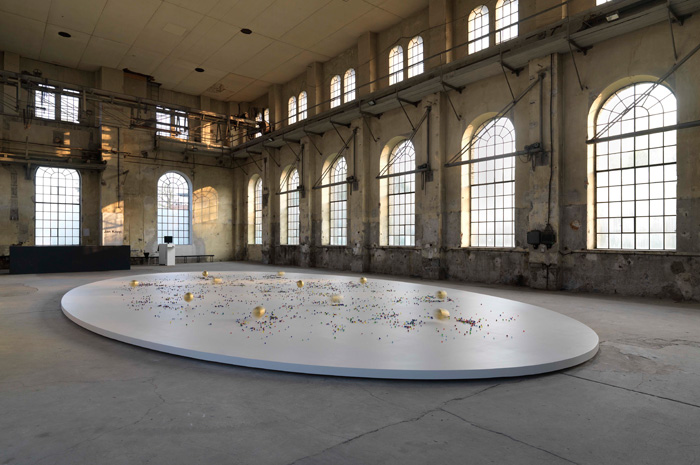
11 Foucault's pendulums, 3000 glass beads, painted wooden tray, 16 x 9 m
Production : Coproduction Abbaye de Maubuisson / Conseil départemental du Val-d'Oise, Frac Alsace, Kunstraum Dornbirn, in partnership with the Musée des arts et métiers, Paris
Suspended from the beams of the Barn, eleven Foucault pendulums swing above a base studded with colored balls. In a slow and regular movement, each sphere adopts a particular direction. First presented publicly in 1851 at the Pantheon in Paris, Foucault's pendulum is an instrument designed to demonstrate the rotation of the Earth. Diverting this particular use, Jan Kopp tends to take us away from any scientific logic. A pendulum can cross the trajectory of a ball in a completely unpredictable way, without disturbing its slow oscillation. Jan Kopp plunges us into a poetic and meditative atmosphere, in which we are the contemplators of a game without rules, without goal and without end.
"From time to time, and without being able to foresee it, this device is disturbed by the slamming and rolling sound of a marble on the floor, hit by a pendulum in its course. If Foucault's pendulum is a scientific instrument that materializes the rotation of the earth, each of these collisions punctuates the encounter between an unshakeable cosmic mechanics and a random configuration of reality at a given moment. [Each collision is a promise of the advent of meaning, more immediately identified by the sound it produces than by its spectacle. Thus, the real spring of the work is the expectation of the event, whether it takes place or not." [...]
Production : Coproduction Abbaye de Maubuisson / Conseil départemental du Val-d'Oise, Frac Alsace, Kunstraum Dornbirn, in partnership with the Musée des arts et métiers, Paris
Suspended from the beams of the Barn, eleven Foucault pendulums swing above a base studded with colored balls. In a slow and regular movement, each sphere adopts a particular direction. First presented publicly in 1851 at the Pantheon in Paris, Foucault's pendulum is an instrument designed to demonstrate the rotation of the Earth. Diverting this particular use, Jan Kopp tends to take us away from any scientific logic. A pendulum can cross the trajectory of a ball in a completely unpredictable way, without disturbing its slow oscillation. Jan Kopp plunges us into a poetic and meditative atmosphere, in which we are the contemplators of a game without rules, without goal and without end.
"From time to time, and without being able to foresee it, this device is disturbed by the slamming and rolling sound of a marble on the floor, hit by a pendulum in its course. If Foucault's pendulum is a scientific instrument that materializes the rotation of the earth, each of these collisions punctuates the encounter between an unshakeable cosmic mechanics and a random configuration of reality at a given moment. [Each collision is a promise of the advent of meaning, more immediately identified by the sound it produces than by its spectacle. Thus, the real spring of the work is the expectation of the event, whether it takes place or not." [...]
| — Olivier Grasser, excerpt, catalog of the exhibition Das endlose Spiel, Kunstraum, Dornbirn, Austria, 2010 |
| + Text by Julie Portier, Berceuse philosophique, 2011
+ Video interview: Jan Kopp talks about the installation Le Jeu sans fin in the interview with L'atelier A (partnership Adagp and ARTE Creative), on the occasion of the exhibition La Courbe de la ritournelle, Centre d'art contemporain, Abbaye de Maubuisson, Saint-Ouen-l'Aumône, 2011 |
| + Press review: Julie Portier, Gaétane Lamarche-Vadel, Gwendal Fossois, Jacinto Lageira, Joris Lacoste, Thierry Davila, Olivier Grasser, Marc Wellmann |
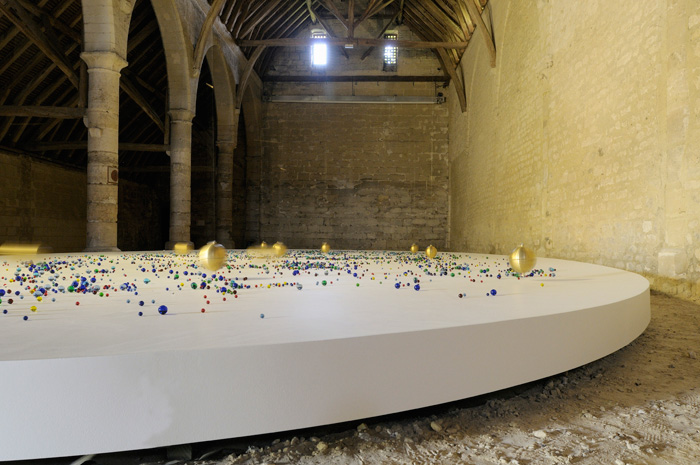
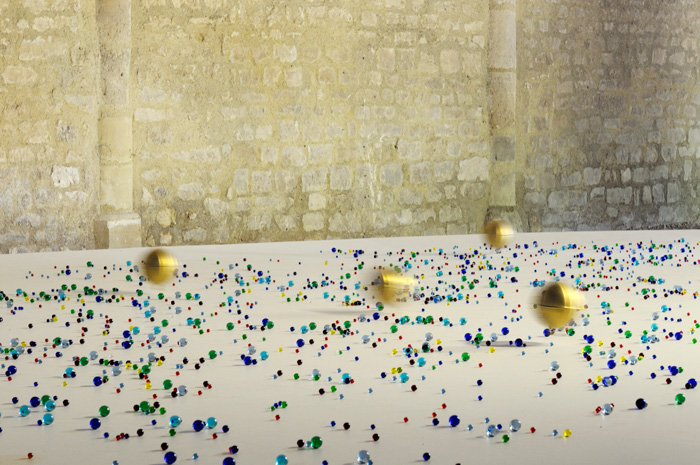

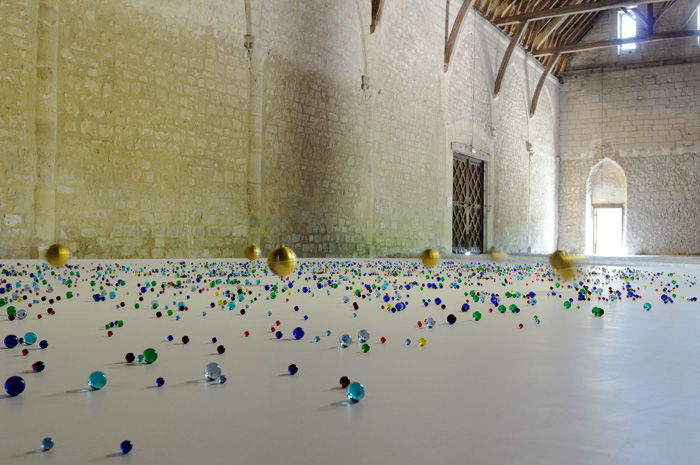
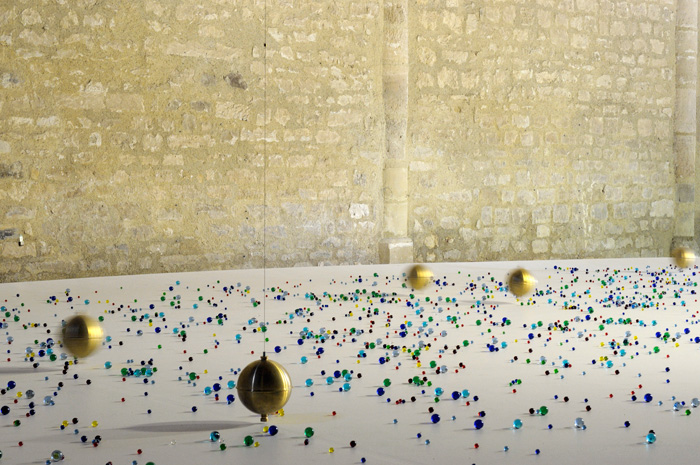
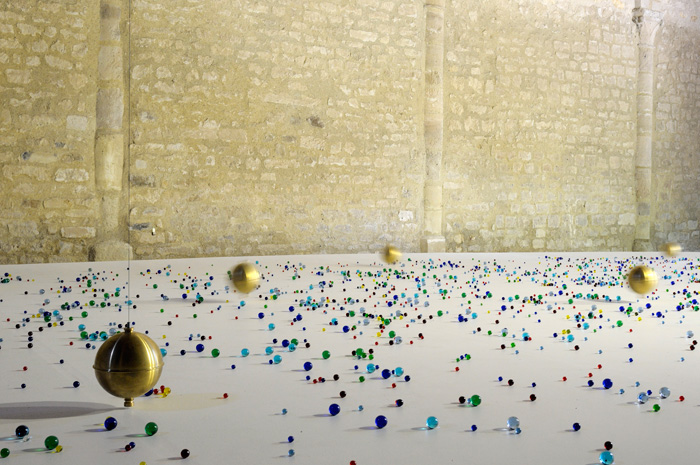

Exhibition views La Courbe de la ritournelle, Abbaye de Maubuisson, site d'art contemporain du Conseil départemental du Val-d'Oise, Saint-Ouen-l'Aumône, 2011
Photos: © Robert Fessler & © Catherine Brossais - Conseil départemental du Val-d'Oise
ALL WORKS